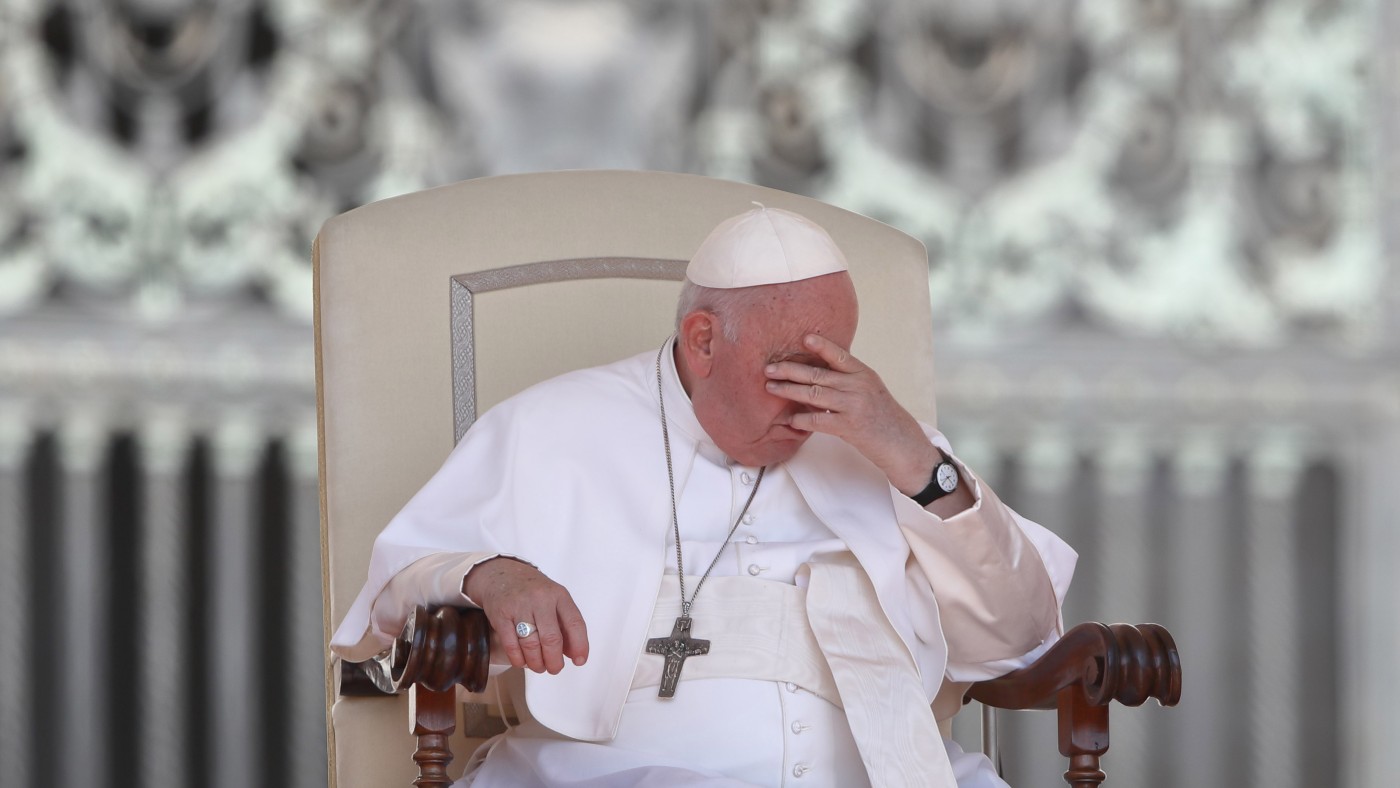The Pope, the ‘false prophet’, and the battle for Argentina
Opinion has been split on whether the pontiff's intervention into politics in his home nation is appropriate

A free daily email with the biggest news stories of the day – and the best features from TheWeek.com
You are now subscribed
Your newsletter sign-up was successful
Argentina’s presidential election in October is shaping up as a political and cultural battle between a right-wing populist and… the Pope.
Javier Milei is the politician. The 52-year-old economist was largely unknown before 2021 but came out on top in the presidential primaries in August, having “pledged to wage a ‘cultural battle’ to transform Argentina into a libertarian paradise where capitalist efficiency replaces social assistance”, said The Observer.
Pope Francis, born in Buenos Aires and the former archbishop of the Argentinian capital, is still an influential figure in his homeland and the 86-year-old has been making his feelings known on the political situation there.
The Week
Escape your echo chamber. Get the facts behind the news, plus analysis from multiple perspectives.

Sign up for The Week's Free Newsletters
From our morning news briefing to a weekly Good News Newsletter, get the best of The Week delivered directly to your inbox.
From our morning news briefing to a weekly Good News Newsletter, get the best of The Week delivered directly to your inbox.
In a TV interview in March, Pope Francis commented on the rise of the far-right in Argentina, saying “it is the triumph of selfishness over communitarianism”. And he appeared to refer to the political newcomer Milei specifically when he said: “I am terrified of saviours of the nation without a political party history.”
Francis even made reference to Hitler in the interview, talking about the “new politician, who spoke beautifully, who seduced the people”, said Crux.
The Catholic news site also noted that Milei has variously described Pope Francis as “a ‘communist,’ an ‘imbecile’ and even a ‘leftist son of a b*.’”
A self-described “tantric sex instructor” who bragged about “various threesomes” in numerous TV appearances that built his fame, Milei also claims to be a staunch Catholic, said The Telegraph. He “wants to limit abortion rights in all cases, unless the mother’s life is at risk”, and “blames cultural Marxism for the LGBT movement”, said the paper.
A free daily email with the biggest news stories of the day – and the best features from TheWeek.com
And those far-right, populist views brought Milei 30% of the vote in the country’s August primaries, “ahead of both major political coalitions”.
Juan Grabois, a progressive presidential candidate with close links to the Pope, called Milei a “false prophet”, said The Observer, one who has capitalised on dissatisfaction with Argentina’s “dire economic crisis” and triple-digit inflation rate.
Pope Francis’s intervention is significant, as he is regarded as Argentina’s “most famous native son”, Crux said, but his popularity in Argentina has waned. There was “fervor” in 2013, said Religion Unplugged, when Jorge Bergoglio became the first Pope from Latin America, but a decade later he now “generates divided opinions”.
His uneasy relationship with Argentinian politics has a long history. During his time as archbishop of Buenos Aires, he said the government wanted to “cut my head off” due to “false accusations that he had collaborated with the military dictatorship of the 1970s”, Reuters reported. And he has not returned to his homeland since becoming Pope, the news agency added.
In Argentina, and in Spain, he is “blamed for virtually everything”, said Inés San Martin for Angelus. A 2019 poll by the publicly funded Argentinian CONICET research institute cemented this notion. Some 40% of respondents said they were indifferent to Francis, while 27% suggested he was too involved in politics.
But the Vatican undoubtedly holds historic influence. “For the past two thousand years, the Pope has been a major player in global affairs”, a “peace broker, a mediator, an advocate, and an influence”, said the Council on Foreign Relations’s Gabrielle Sierra.
His governmental arm, The Holy See, also wields political power. The pontiff has diplomatic relationships with 183 countries. This provides him with “access to international relations in a way that no other religious leader could even imagine having”, Timothy Byrnes, professor of political science at Colgate University, told the council.
During the Cold War, Pope John Paul II was seen as being “an instrumental figure in setting the course for the Soviet Union’s demise”, said War on the Rocks, with a “political nonalignment” policy offering “unique access to foreign powers”.
Perhaps the Vatican’s biggest sphere of influence, ironically aligning with Milei’s views, is opposition to abortion. In Argentina in 2018, Francis was reported to “have personally lobbied senators to spur votes against the legislation” to allow elective abortion up to 14 weeks of pregnancy, said The Lancet.
However, he has also “shown solidarity… with migrants, talked about climate change and espoused Catholic Social Teaching that sometimes finds itself at odds with some parts of capitalism”. The number of practising Roman Catholics has dropped in Argentina, but it is still the majority religion, and deeply embedded into national culture.
With the Pope and Milei at odds on key issues, for many Argentinians the presidential election next month will be a question of church or state.
Rebekah Evans joined The Week as newsletter editor in 2023 and has written on subjects ranging from Ukraine and Afghanistan to fast fashion and "brotox". She started her career at Reach plc, where she cut her teeth on news, before pivoting into personal finance at the height of the pandemic and cost-of-living crisis. Social affairs is another of her passions, and she has interviewed people from across the world and from all walks of life. Rebekah completed an NCTJ with the Press Association and has written for publications including The Guardian, The Week magazine, the Press Association and local newspapers.